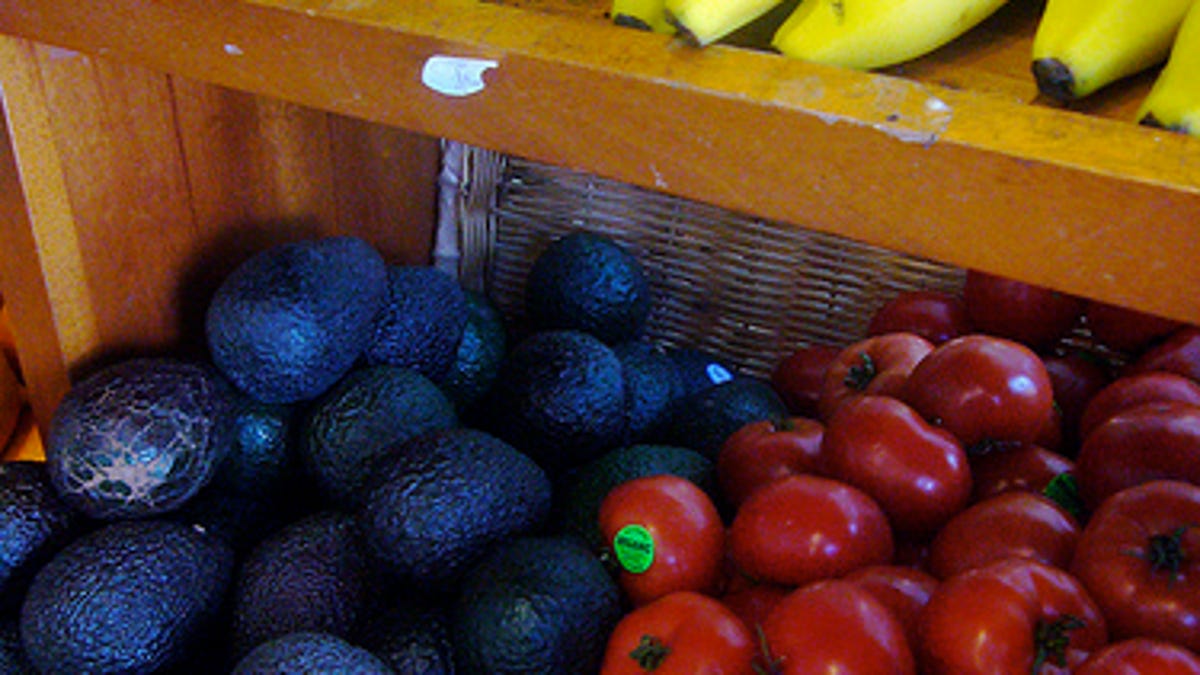Will blog posts get stamps of quality?
Concern over "content mills" that can flood the Web with cheap blog posts and videos has led one trade group to suggest that there should be guidelines to keep these companies in check.

Walk through the produce aisles of any grocery store and on the outsides of avocados, pomegranates, mushrooms, and just about everything else you'll see an astonishing number of stickers and labels advertising various kinds of quality standards: certified organic, fair-trade, all-natural, locally grown, and so forth.
Might we soon be seeing the same kinds of labels on digital content?
A small trade group called the Internet Content Syndication Council (ICSC) has been circulating a document since late May--highlighted Tuesday in an AdWeek article--to drum up industry concern about "content mills," a fast-growing sector of the digital media business that publish loads of cheap, fast stories (mostly created by low-paid freelancers) that rank high in search engine results, and run ads against them. Content mills like Demand Media, AOL's Seed.com, and Associated Content (freshly acquired by Yahoo) say they're streamlining the creation of print and multimedia content up to the speed of the Digital Age, filling up holes in the Web with new, often very niche-oriented material. But they have also unleashed a bogeyman of a business model onto the Web, with many journalists and media outlets claiming that their craft is getting cheapened, perhaps fatally so.
"The rise of 'content mills' threatens to degrade the overall quality of content, thereby reducing the usefulness of the Internet for users seeking information--and also for the advertisers who want a good environment for their messages," the ICSC document reads. "To counter this threat, the Internet Content Syndication Council believes the time has come to start an industry discussion about the best way to preserve standards of quality for informational content."
Media industry professionals fearful of content mills' fast encroach may take heart at this development, but at least for now, there haven't been anything close to conclusions on how to deal with the issue concretely. How, exactly, do you stamp a label of "quality" on a blog post as though it were a certified-organic pineapple?
"The word 'content' is so broad as to be non-descriptive," ICSC executive chairman Tim Duncan told CNET in an interview Tuesday, explaining that a very preliminary first step has been to narrow the task force's focus to "factual" or news-based content rather than opinion. "Grabbing two quotes off Wikipedia and slapping a byline on it, which may or may not be descriptive of how certain companies operate, it may not be pursuing a subject in depth, and if that same article is what comes up high on a search engine because it's deliberately designed to do so, so-called 'linkbait,' is that something that can be addressed?"
About a dozen of the ICSC's member organizations, who include the likes of Reuters and Procter & Gamble (Disclosure: CBS, which publishes CNET, is a member of the ICSC as well), have expressed interest in entering a dialogue about how best to deal with the potential problems caused by the content mill model--driving journalists' pay down and simultaneously encouraging them to write more lower-quality, less-researched stories ("people seem to need to churn out three of these articles an hour just to pay their rent," Duncan observed) that partner sites don't want to syndicate and that advertisers don't want to run content alongside. The pitch they're making: this content can't be trusted.
"I have seen some people on blogs arguing that accuracy is irrelevant because people have lots of sources and they don't just go to one source. I would take issue with that," Duncan said. "If you go to a site and it's about something and there's some wrong things or some badly phrased things there, you might decide you won't go back to that site again."
Of course, a lack of accuracy is something that companies like AOL, Yahoo, and Demand Media would refute. AOL, which said last month that it's also hiring "hundreds" of full-time reporters and editors, plucked veteran journalist Saul Hansell away from The New York Times to helm Seed.com, giving the new venture a bit of old-school media credibility. Yahoo has also been staffing up on full-time journalists even as it acquired Associated Content. And Demand, one of the biggest providers of videos to YouTube, also owns some reputable brands like hiking resource Trails.com and popular humor site Cracked.
Then there's the fact that the ICSC's power may prove limited. A trade group can issue guidelines, best practices, and suggested regulations. But unlike the government agencies in charge of quality labels on food, it can't go around penalizing offenders.
Tim Duncan suggested that one route could be to get search engines involved, pointing out a February patent application on behalf of Google that deals with "Identifying inadequate search content."
"If you read the patent description, it seems to be an attempt to address issues of quality," he said.
Content mills are more complex than the villainous sources of cheap blog copy that some publishers make them out to be, and to make matters even stickier, the model has proven extremely profitable--at least in Demand's case. The ICSC is upfront about the fact that it doesn't yet know how exactly to tackle their beef with these companies, and that the dialogue it hopes to start hasn't yet taken place.
"We haven't really done anything more than exchange e-mails," Duncan said. "About 15 of our members have said they'd really like to participate in a talk. It's hard to say how much further it will go than that."

